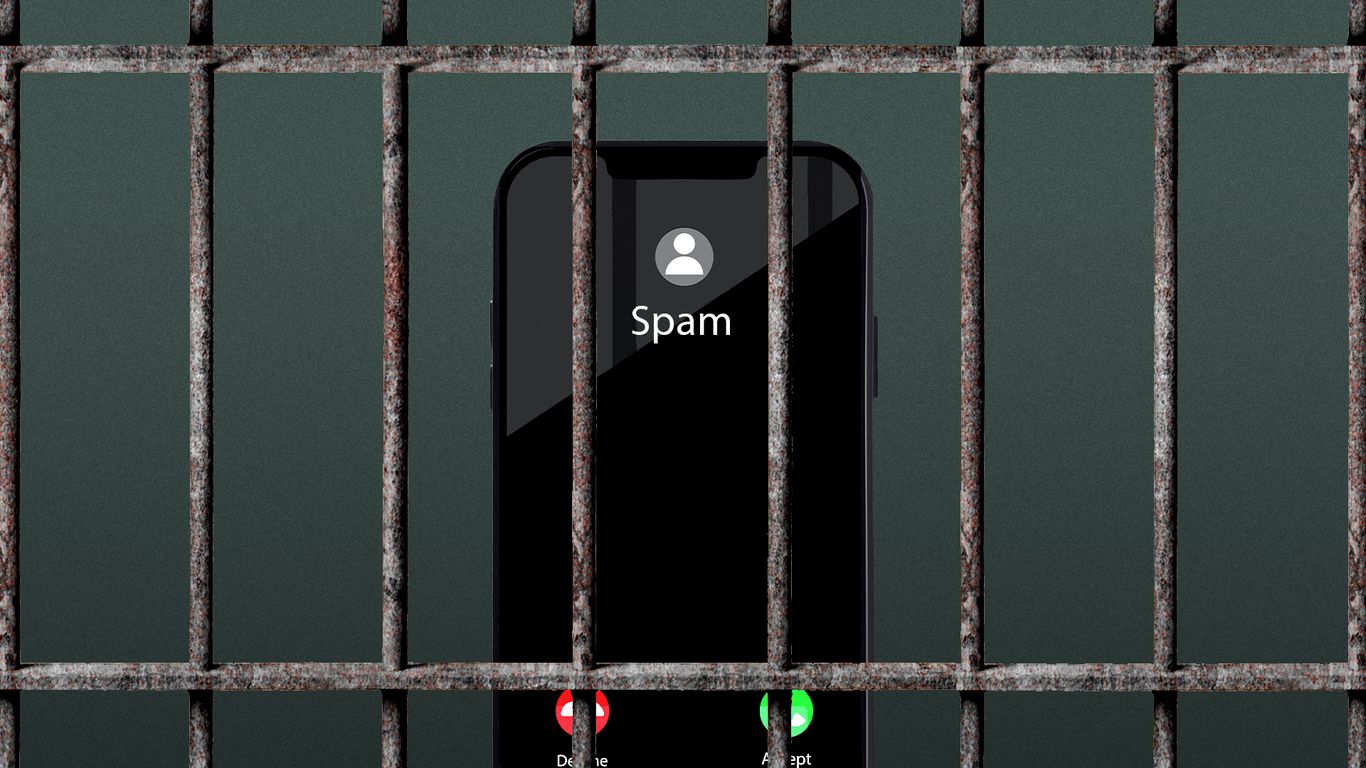#cybercrime
#cybercrime
[ follow ]
#ransomware #data-breach #phishing #law-enforcement #north-korea #sanctions #phishing-as-a-service #cybersecurity
fromSecurityWeek
1 day agoMan Linked to Phobos Ransomware Arrested in Poland
A 47-year-old man arrested by police in Poland for allegedly being involved in cybercriminal activities has been linked to the Phobos ransomware operation. According to Poland's Central Cybercrime Bureau, officers found hacking tools, credentials, payment card numbers, and server IP addresses on the unnamed suspect's devices during a search. They also discovered that the suspect had exchanged messages with the Phobos ransomware group.
Information security
fromSan Jose Inside
6 days agoMembers of Conspiracy Get Prison Terms for Stealing $2.5M from DoorDash
In furtherance of the scheme, prosecutors said the five defendants created fraudulent customer accounts and driver accounts on DoorDash's platform and used the fictitious customer accounts to place orders for delivery. Using insider access to DoorDash's computer systems, the defendants assigned those orders to fraudulent driver accounts, then manipulated DoorDash's computer systems to cause DoorDash to pay the fraudulent driver accounts as if individual orders had been delivered hundreds of times.
US news
fromSecurityWeek
2 weeks agoCyber Insights 2026: Cyberwar and Rising Nation State Threats
Entering the cyber world is stepping into a warzone. Cyber is considered a war zone, and what happens there is described as cyberwar. But it's not that simple. War is conducted by nations (political), not undertaken by criminals (financial). Both are increasing in this war zone we call cyber, but the political threat is growing fast. Cyberwar is a complex subject, and a formal definition is difficult.
Information security
Information security
fromDataBreaches.Net
2 weeks agoThreats: Results of a pilot survey on threats, and a new category on DataBreaches.net - DataBreaches.Net
A pilot survey of 112 respondents documented legal, criminal, and other threats faced by security researchers and journalists, calling for further research and action.
from24/7 Wall St.
1 month agoCybersecurity Can Be The Next Mega Trend Thanks To AI
Any industry that revolves around AI in some way has seen a boost in the stock market, and cybersecurity may be one of the most promising opportunities. As AI efforts expand, companies will have more data that they must safeguard from hackers. Cybersecurity stocks have been long-term winners thanks to their annual recurring revenue models and how valuable they are for companies. The value of cybersecurity firms should continue to rise as AI makes their services more essential.
Information security
fromTheregister
1 month agoAppeal fails for hacker who opened port to coke smugglers
The court heard how the defendant helped orchestrate the intrusion of a port operator's computer systems by having a terminal employee insert a USB stick containing malware into a workstation. That single physical act opened the door to months of remote access. Investigators found a backdoor installed in September 2020 that stayed put into the following year, while chats show the defendant exploring the network and hunting for admin access.
Miscellaneous
Information security
fromDataBreaches.Net
1 month agoConde Nast gets hacked, and DataBreaches gets "played" - Christmas lump of coal edition - DataBreaches.Net
DataBreaches engages with cybercriminals and researchers, sometimes withholding reports to avoid extortion pressure, while occasionally publishing leaks when personal information is exposed.
fromThe Mercury News
1 month agoFired Stanford researcher gets probation for altering cancer data with insults like 'doctor too stupid'
Notably, for the seven years since her arrest, Ms. Mangi has complied with her conditions of release. She is 70 years old and has lived at the same address for the past 28 years,
Information security
fromwww.dw.com
1 month agoGhana says Nigerian nationals arrested for online fraud DW 12/24/2025
Ghana arrested almost 50 Nigerians in an operation against online scammers, the government said on Wednesday. The arrests were made during a raid on the outskirts of the capital city Accra. Sam George, the country's information minister said on his X account that the nighttime raid resulted in the arrest of "48 suspected cybercrime operations," with the suspects believed to be Nigerian nationals.
World news
fromComputerWeekly.com
1 month agoTop 10 cyber crime stories of 2025 | Computer Weekly
Once again threat actors kept cyber pros on their toes in 2025 in a never-ending cat-and-mouse game. But amid the noise, there were some notable stories and incidents affecting household names in the UK - the likes of Marks & Spencer, Co-op, and Jaguar Land Rover - meaning that 2025 will undoubtedly live long in the memory. Here are Computer Weekly's top cyber crime stories of 2025
Information security
fromwww.theguardian.com
2 months agoThe Com: the growing cybercrime network behind recent Pornhub hack
Ransomware hacks, data theft, crypto scams and sextortion cover a broad range of cybercrimes carried out by an equally varied list of assailants. But there is also an English-speaking criminal ecosystem carrying out these activities that defies conventional categorisation. Nonetheless, it does have a name: the Com. Short for community, the Com is a loose affiliation of cyber-criminals, largely native English language speakers typically aged from 16 to 25.
Information security
fromJezebel
2 months agoReminder: There's No Such Thing as a Hack-Free Home Camera
That's the conclusion we'd like to believe any sane person would likely draw, reading this week's absurd report from South Korea, where four people were arrested after allegedly hacking an astounding 120,000 separate commercial home video cameras stationed in houses and businesses. As if that level of breach isn't inherently icky enough, several of the suspects then reportedly used the hacked material to make and then sell sexually explicit exploitation videos of strangers to foreign-based web networks that illegally distribute hacked, pornographic camera footage.
Privacy technologies
fromTheregister
2 months agoDutch study finds teen cybercrime is mostly just a phase
Young threat actors may be rebels without a cause. These cybercriminals typically grow out of their offending ways by the time they turn 20, according to data published by the Dutch government. In a report examining the social cost of adolescent crime, the Dutch House of Representatives cited various research papers to show that teenagers tend to explore their criminal tendencies at similar ages, regardless of the type of crime.
Information security
Information security
fromThe Hacker News
2 months agoThreatsDay Bulletin: AI Malware, Voice Bot Flaws, Crypto Laundering, IoT Attacks - and 20 More Stories
Threat actors are reviving Mirai-based botnets and exploiting multiple IoT vulnerabilities to build DDoS-capable botnets while defenders dismantle fake networks and tighten defenses.
fromTheregister
2 months agoLLMs can be easily jailbroken using poetry
Are you a wizard with words? Do you like money without caring how you get it? You could be in luck now that a new role in cybercrime appears to have opened up - poetic LLM jailbreaking. A research team in Italy published a paper this week, with one of its members saying that the "findings are honestly wilder than we expected."
Artificial intelligence
fromTheregister
2 months agoRussia-linked crooks bought themselves a bank for Christmas
On Christmas Day 2024, a Russian-linked laundering network bought itself a very special present: a controlling stake in a Kyrgyzstan bank, later used to wash cybercrime profits and funnel money into Moscow's war machine, according to the UK's National Crime Agency (NCA). The network, exposed through the NCA's long-running Operation Destabilise, has been sucking up dirty cash across at least 28 UK towns and cities, converting it into cryptocurrency, and using that crypto to move funds through a bank it quietly acquired in Kyrgyzstan.
Miscellaneous
Information security
fromComputerWeekly.com
2 months agoUK targets 'bulletproof' services that hosted ransomware gangs | Computer Weekly
UK and Five Eyes sanctioned Russia-linked 'bulletproof' hosting operators Media Land and ML Cloud and individuals enabling ransomware gangs to disrupt the cybercrime infrastructure.
Information security
fromThe Hacker News
2 months agoThreatsDay Bulletin: 0-Days, LinkedIn Spies, Crypto Crimes, IoT Flaws and New Malware Waves
Cyber threats are rapidly evolving as criminals exploit browser extensions, smart devices, social platforms, and novel malware while governments and companies intensify countermeasures.
World news
fromIT Pro
2 months agoThe US, UK, and Australia just imposed sanctions on a Russian cyber crime group - 'we are exposing their dark networks and going after those responsible'
International sanctions target Media Land and affiliates for providing 'bulletproof' hosting that enabled ransomware, phishing, DDoS, and attacks on critical infrastructure.
Information security
fromBusiness Insider
3 months agoHow cybercrime actually works, according to a former internet fraudster
A former cybercriminal who cofounded ShadowCrew stole over $1 million using credit-card theft, phishing, and counterfeit documents, later serving prison time and now works in cybersecurity.
World news
fromThe Cipher Brief
3 months agoInterpol's Cybercrime Chief on How AI is Driving Borderless Cyber Threats
Interpol coordinates global law enforcement cooperation, information-sharing and training to counter increasingly organized, AI-enhanced cybercriminal networks that blend cybercrime with transnational crime.
fromFast Company
3 months ago4 ways to outsmart cybercriminals
Cybercrime is a serious threat to the global economy, destroying livelihoods, sowing distrust, and undermining growth. One forecast has it costing more than $15 trillion annually by the end of the decade. If so, only the GDPs of the U.S. and China are bigger. There's cause for hope, though. As cyberthreats evolve, innovation is meeting the challenge. New solutions are leveraging AI, real-time threat intelligence, collaborative networks, and advanced authentication technologies.
Information security
fromwww.theguardian.com
3 months agoYou can be an ethical hacker, not a criminal one': the initiative guiding young gamers into cybersecurity
Video games have come a long way since they gained widespread popularity in the 1970s and the numbers of people playing them have rocketed. Today, it is estimated that there are about 3 billion gamers worldwide, including more than 90% of gen Z, who spend on average more than 12 hours a week gaming. Modern gaming epics are packed with imagination and invention, drawing young people into noisy, colourful, and often seemingly infinite worlds that they can shape and develop themselves.
Video games
fromwww.theguardian.com
3 months agoI was led down the wrong path into cybercrime as a teenager. Here's what I would tell my younger self
When I was a teenager, gaming completely took over my life. I'd play for 12 or more hours a day; it was all I thought about. Video games gave me a different way to socialise because I didn't enjoy school and didn't have much of a social life offline. The gaming world became my entire environment, my escape, my community.
Information security
Information security
fromThe Hacker News
3 months agoThreatsDay Bulletin: AI Tools in Malware, Botnets, GDI Flaws, Election Attacks & More
Digital vulnerabilities now translate into real-world harm as scams, rented cyber violence, and compromised apps turn digital weaknesses into physical, economic, and political threats.
Information security
fromThe Hacker News
3 months agoA Cybercrime Merger Like No Other - Scattered Spider, LAPSUS$, and ShinyHunters Join Forces
Three cybercrime groups formed Scattered LAPSUS$ Hunters, creating and repeatedly rebuilding at least sixteen Telegram channels to run coordinated data extortion and EaaS operations.
fromTheregister
3 months agoUN Cybercrime Treaty wins dozens of signatories
The Convention took five years to develop and has three purposes: Promote and strengthen measures to prevent and combat cybercrime more efficiently and effectively; Promote, facilitate and strengthen international cooperation in preventing and combating cybercrime; and Promote, facilitate and support technical assistance and capacity-building to prevent and combat cybercrime, in particular for the benefit of developing countries. Those goals are hard to oppose.
World news
fromIndependent
3 months agoMan jailed after hacking into Brown Thomas customer accounts, taking loyalty points and using them to buy goods for himself
An "armchair thief" hacked into a department store's customer accounts, took their loyalty points and used them to buy high-value goods for himself in a "sophisticated, devious" cyber attack.
Miscellaneous
fromNextgov.com
3 months agoAI has leveled the field between cybercriminals and nation-state hackers, FBI official says
The FBI has not been as quick to adopt AI in its day-to-day operations because it handles sensitive data that requires stringent protections and oversight to maintain security and legal standards, he said. "We're trying to catch up in many ways, and part of that is because we have very sensitive datasets that we have to make sure we protect because of the authorities that we have," Leatherman said.
Information security
Information security
fromwww.theguardian.com
3 months agoScamming became the new farming': inside India's cybercrime villages
A rural district in Jharkhand became a nationwide hub for large-scale mobile-phone banking scams, enriching young perpetrators and transforming public experience of India's digital revolution.
[ Load more ]


























